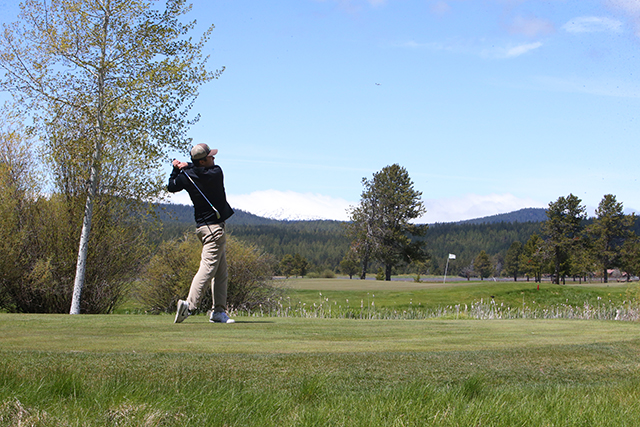Letters to the Editor
Published 12:00 am Sunday, March 22, 2015
Off track on fast track
Recently, The Bulletin’s editorial board said that Sen. Ron Wyden was on the right path when it came to deliberating over fast track trade promotion authority in Congress. The editorial board and Senator Wyden are correct in saying we need to have stronger enforcement of the rules, strong protections for labor, human rights and the environment and rules that are fundamental to preserving free speech and freedom of the Internet.
The problem is that none of these are going to be included in the Trans-Pacific Partnership (TPP). This is the very trade pact that fast track is designed to help ram through Congress by blocking any chance for amendments by and with limited debate once our 535 democratically elected officials “get their hands on the deal.”
I agree that trade is critical for Oregon’s economy, but that does not mean any trade deal is better than no trade deal. We certainly do not need the old fast track created by President Nixon to forge good trade pacts.
Since before Oregon was a state, presidents have worked with Congress to set trade policy. Fast track must be replaced with a process appropriate to today’s expansive trade agreements.
Jerry Fletcher
Redmond
Why didn’t OSU-Cascades hire local?
Is Oregon State University just clueless and where did that higher-level line of reasoning go?
I opened up Monday’s Bulletin, and the first thing that caught my attention was the article, “School to retool its pitch,” subheading, “university set to hire PR firm to help relay its vision for campus project.”
I thought to myself that seems like a good step and one that has been suggested more than once. To put all my cards on the table, I am more than concerned about their chosen location and its impact on the west-side residents.
To be clear, I strongly believe in access to higher education and think that OSU is a good fit for Central Oregon. According to the article, OSU is nearing a $100,000 deal with Gallatin Public Affairs, a firm with offices across the Pacific Northwest and according to their website have staff in Boise, Portland, Seattle, Olympia and Salem, to convince people like me to change their minds.
Really?
Instead of supporting a local PR firm, of which there are many and one that has insider knowledge on points of persuasion, they are taking their money and spending it elsewhere? Great way to start the conversation OSU, and I can’t wait to see what they have in store next.
Holly Hutton
Bend
The power of religion
Ross Douthat’s commentary, “Making the case for old ideas,” published on March 15, fails to connect the right set of dots. In it, he criticizes historian Yuval Harari’s disdain for applying “old answers” derived from religious dogma to modern problems.
Douthat goes on to offer examples of how religious fervor advanced civilization. And how applications of scientific ideas have gotten us into trouble. However, with a little close examination, it becomes apparent that his examples don’t hold up. In every instance, religious connections were side effects rather than drivers of change. Convenient rationalizations cooked up to obscure, less obvious causal forces.
Sure, religions have always acted as agents for strengthening social cohesion among members who share, as Dr. Harari refers to them, the same imagined orders. Throughout history, shared fictions have strengthened our ability to cooperate with each other. This often advanced society locally. But it was (and also continues to be) the source that fuels human aggression toward “nonbelievers” — a facet of human nature perhaps mostly clearly seen in the modern world in the Islamic State.
It is only in the last few decades that we have learned enough, through the application of the scientific method, about human nature that we are coming to see human history and the “old truths” embedded in it in a very different light.
Or as Dr. Harari would say, “We should study history not in order to learn from the past, but in order to be free of it.”
Game on.
Ron Smith
Bend






